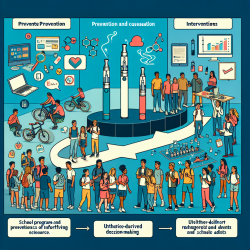The concept of Awareness of Age-Related Change (AARC) is pivotal in understanding how individuals perceive their aging process. It encompasses the awareness that one's behavior, physical, cognitive, and social performance have changed due to aging rather than disease. This concept is crucial for practitioners working with older adults as it provides insights into subjective aging experiences.
The Portuguese Adaptation: A Closer Look
A recent psychometric study evaluated the Portuguese version of the AARC Short Scale among Brazilian older adults. This study aimed to assess the construct validity and internal consistency of the scale. The findings confirmed that the translated scale retained its validity and reliability, making it a valuable tool for practitioners in Portuguese-speaking regions.
Key Findings
- Factor Structure: The scale maintained a two-factor structure representing gains and losses, similar to the original version.
- Internal Consistency: High internal consistency was observed with Cronbach’s alpha scores exceeding 0.700.
- Convergent Validity: The scale's scores correlated with measures of frailty and self-rated health, confirming its validity.
Implications for Practitioners
The successful adaptation of the AARC Short Scale into Portuguese opens new avenues for practitioners. Here are some ways you can leverage these findings:
Enhancing Client Understanding
By using the AARC Short Scale, practitioners can gain deeper insights into their clients' perceptions of aging. Understanding whether clients perceive more gains or losses can guide interventions aimed at improving well-being and addressing concerns related to aging.
Promoting Positive Aging
The study highlights that awareness of age-related gains correlates with better self-rated health. Practitioners can use this information to encourage clients to focus on positive aspects of aging, thereby enhancing their overall well-being.
Cultural Sensitivity
The translation and adaptation process ensures that the scale is culturally appropriate for Brazilian older adults. Practitioners working in multicultural settings can consider similar adaptations to ensure relevance and accuracy in different cultural contexts.
Encouraging Further Research
This study lays the groundwork for further exploration into age-related awareness across different cultures. Practitioners are encouraged to participate in or initiate research projects that expand on these findings, potentially leading to more robust interventions tailored to diverse populations.
Conclusion
The translation and validation of the AARC Short Scale into Portuguese provide a powerful tool for practitioners working with older adults. By understanding clients' perceptions of their aging process, practitioners can tailor interventions more effectively and promote positive aging experiences.
To read the original research paper, please follow this link: Psychometric study of the Awareness of Age-Related Change (AARC) Short Scale translated to Portuguese, applied to Brazilian older adults.










